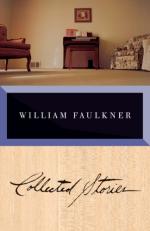|
This section contains 197 words (approx. 1 page at 300 words per page) |

|
Faulkner had read widely and learned technical possibilities from everyone he read. He often drew on popular genres such as humor, Gothic, and detective stories. When asked which writers he admired most and continued to read, he named the Old Testament, Charles Dickens, Conrad, Miguel de Cervantes, Gustave Flaubert, Honore de Balzac, Feodor Dostoevski, Leo Tolstoy, William Shakespeare, Melville, John Keats, and A. E. Housman, among some others. He thought James Joyce and Thomas Mann to be among the greatest writers of his generation. He expressed admiration for Thomas Wolfe and Sherwood Anderson, among other contemporary Americans.
Faulkner's stories show influences from all of these sources. His most distinctive and characteristic stories are those set in his mythical Yoknapatawpha County, Mississippi. In these stories the landscape, characters, and compulsions of his native country become the source of a rich and living fiction. From this point of...
|
This section contains 197 words (approx. 1 page at 300 words per page) |

|




